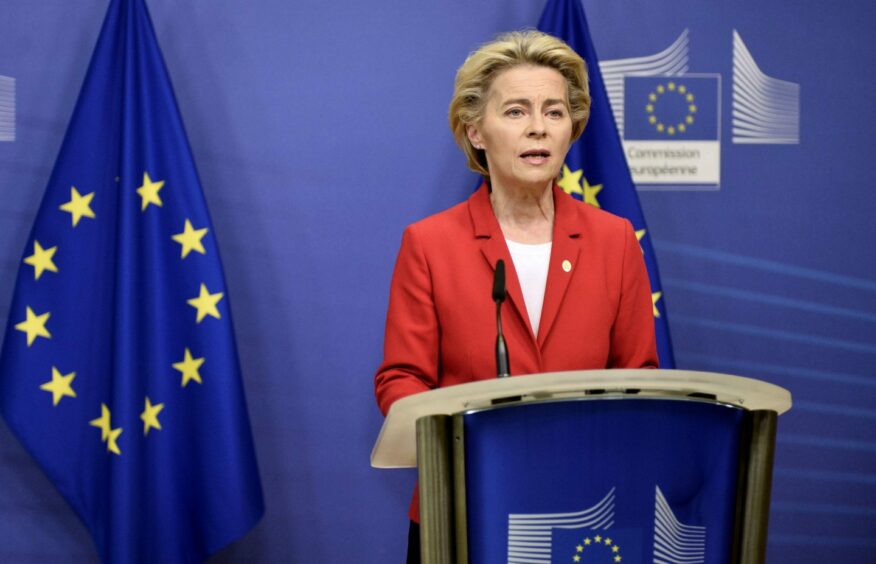
European Union nations will make a fresh attempt at reaching a deal on a controversial proposal to cap high natural gas prices as the region battles a blast of winter freeze.
The plan to intervene in the market, unveiled by the European Commission last month, has caused a deep rift among member states, which are racing to strike a deal on a broader package of emergency measures before the end of the year.
EU energy commissioner Kadri Simson told reporters Tuesday as she walked into a meeting of energy ministers that the discussions may be the most difficult yet.
“I see a lot of willingness to find an agreement among energy ministers and not to leave the decision-making to someone else,” she said. “But of course all the ministers do have their limits and expectations are different.”
Countries led by Germany, the Netherlands and Denmark are calling for a cautious approach, while a group including Belgium, Italy, Greece and Poland is pushing for a more aggressive tool to contain gas prices. Energy ministers will try to bridge the differences at an emergency meeting Tuesday in Brussels.
“There is no consensus at this moment on how it needs to work and on the numbers,” Tinne van der Straeten, Belgium’s energy minister told Bloomberg TV on Monday. “Security of supply is important to the continent as a whole. We have to keep gas flowing to Europe.”
At stake is the future of the bloc’s $17 trillion economy, where soaring energy prices have already fueled inflation and sent businesses and households reeling from power and gas bills. With Europe hit by a cold snap this week, governments are coming under increased pressure from voters to act or risk a backlash.
Under the commission’s proposal, which member states have the right to amend, the so-called gas market correction mechanism would kick in when the price of month-ahead contracts on the Dutch Title Transfer Facility exceeded €275 ($290) per megawatt hour and the gap between world prices was greater than €58.
The Czech government, which holds the EU rotating presidency, has proposed cutting that to €220 and the spread between EU and world markets to €35. That’s still too high a level for supporters of an aggressive cap and too low for the bloc urging a more cautious stance. Other divisive issues include the scope of the measure, with the hawkish group of countries seeking to extend it to shorter-term trading, and conditions to deactivate the mechanism.
Under the latest compromise proposal shared with member states Monday night, the Czech presidency offered an option of moving the price ceiling to as low as €200, according to a document seen by Bloomberg News. The version would still exclude off-exchanges deals from the price cap, but it also floated the idea of the EU market watchdog monitoring the situation to assess if trading is shifting to over-the-counter.
“Europe does not have time to lose,” Czech industry minister Jozef Sikela told reporters Tuesday. “I strongly believe we have on the table a feasible proposal which gives guarantee to all member states.”
Other divisive issues include the scope of the measure, with the hawkish group of countries seeking to extend it to shorter-term trading, and conditions to deactivate the mechanism.
Failure to reach a deal Tuesday would mean that EU leaders would have to discuss the issue when they convene at a summit on Thursday, before another gathering of energy ministers scheduled for next week.
Recommended for you
